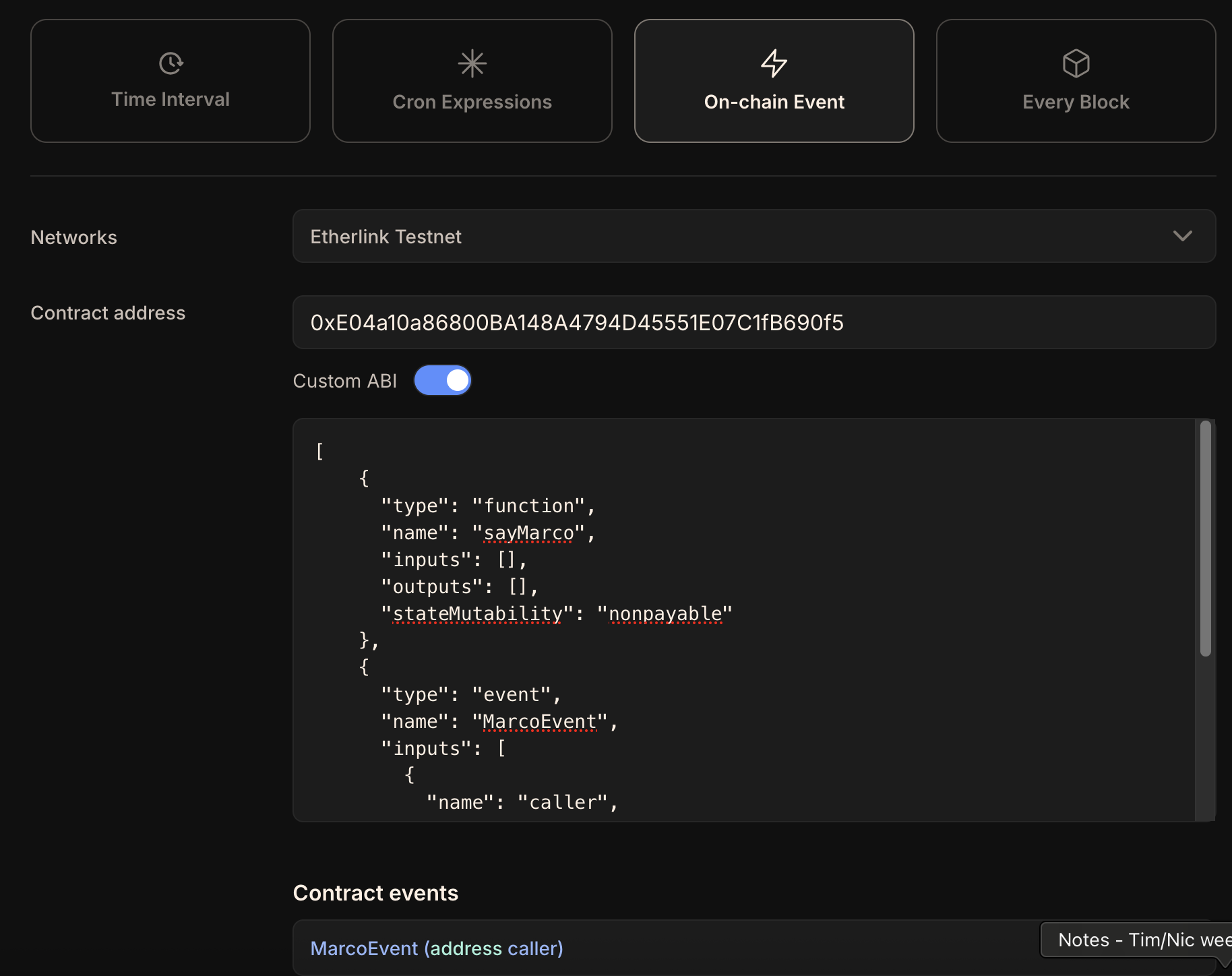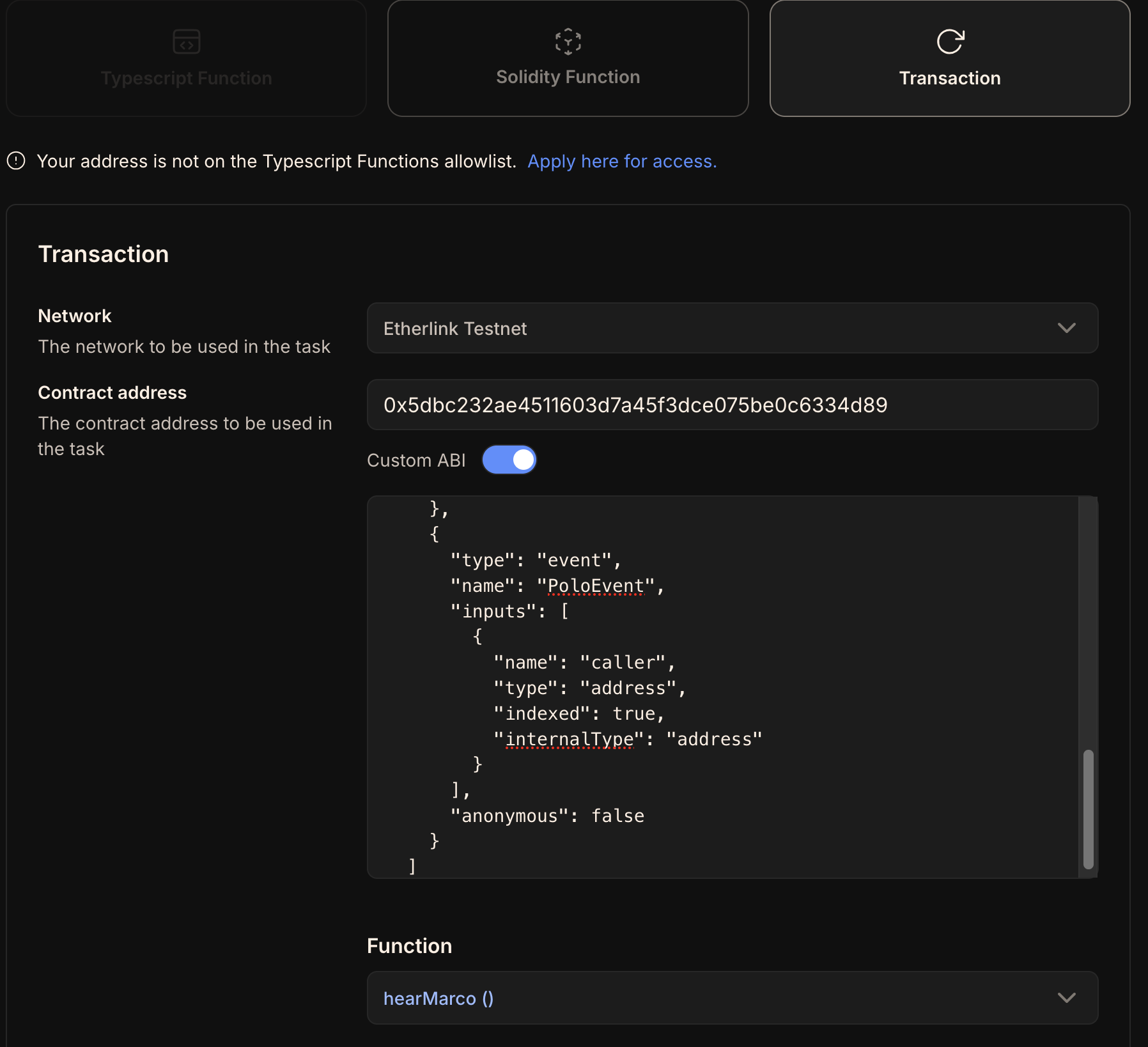Developer experience
Thirdweb
Thirdweb provides a series of tools to make developing dApps easier.
Check out their amazing video tutorials to learn more about their SDKs and how to more easily build EVM dApps.
Safe
Etherlink Safe is an Etherlink implementation of Safe{Wallet}, which manages multi-signature smart contracts (multisigs). Multisigs require signatures from two or more accounts before running transactions, which can provide additional security for accounts or require multiple parties to agree to a transaction. Etherlink Safe helps you create multisigs, select the accounts that can sign transactions, and set the number of signatures required to run a transaction. It also helps manage transactions that are waiting for signatures.
Gelato
Gelato Web3 Functions supports Etherlink, which lets you automate Etherlink contracts based on off-chain activity and activity on other chains. For more information, see the Gelato Web3 Functions documentation at https://docs.gelato.cloud/Web3-Functions/Introduction/Overview.
For example, this contract emits an event when its sayMarco function is called:
// SPDX-License-Identifier: UNLICENSED
pragma solidity ^0.8.13;
contract Marco {
event MarcoEvent(address indexed caller);
function sayMarco() public {
emit MarcoEvent(msg.sender);
}
}
Similarly, this contract has a hearMarco function that emits an event when it is called:
// SPDX-License-Identifier: UNLICENSED
pragma solidity ^0.8.13;
contract Polo {
event PoloEvent(address indexed caller);
uint256 timesHeard;
constructor() {
timesHeard = 0;
}
function hearMarco() public {
timesHeard += 1;
emit PoloEvent(msg.sender);
}
function getTimesHeard() external view returns (uint256) {
return timesHeard;
}
}
Because smart contracts cannot respond to events, these two contracts cannot interact directly.
You can use Gelato Web3 Functions to listen for the Marco event and call the hearMarco function, even if these two contracts are on different networks.
For example, you can register with Gelato at https://app.gelato.cloud and then click Functions and New to create a new function.
On the New Function Task window, select the trigger, in this case On-chain Event. Gelato also supports time and block-based triggers.
Select the network to monitor (such as Etherlink Testnet or Mainnet), specify the address and ABI of the contract, and the event to trigger on, as in this screencap:

Then, further down, specify the action to run when the trigger happens.
For example, to call the other contract's hearMarco function, click Transaction.
Then, select the network and specify the address, ABI, and function to call, as in this screencap:

Now when the first contract emits the event, Gelato calls the second contract. These contracts can be on the same chain or different chains.

 Page Outline
Page Outline